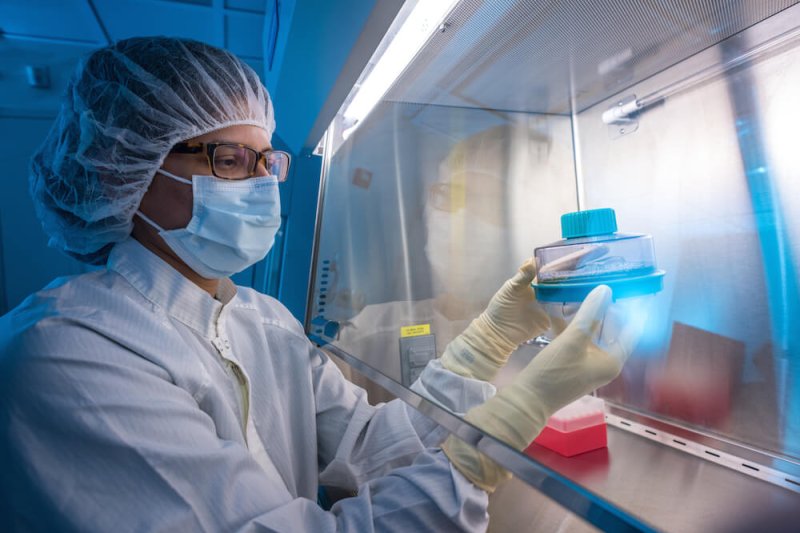[T]he United States Food and Drug Administration (FDA) made the landmark decision to approve two ‘drugs’ that use CAR-T cell therapy – the injection of engineered immune cells into patients – to treat blood cancers. First, in August 2017 it approved Kymriah, a treatment developed by drug company Novartis for acute lymphoblastic leukemia (ALL) in children and young adults. Then in October 2017 it licensed Yescarta, a Gilead Sciences drug for adult diffuse large B-cell lymphoma.
…
The FDA’s decision heralds a new era of personalised cancer treatment. By using the patient’s own cells, CAR-T cell therapy makes it unlikely that tissue will be rejected. Additionally, the one-off infusion gets around the problem of multiple treatment rounds that characterise other cancer drugs, like chemotherapy. There are fewer side effects, and researchers have also proved its longevity: results from a clinical trial of Kymriah released in February show that 76 per cent of the cancer patients survived for a year or more, something unheard of with other treatments.
…
[Immunotherapist Bruce] Levine predicts that the next FDA approvals will be for myeloma, a bone marrow cancer for which therapy development is currently underway. Next up will be tumour-based cancers.…
[T]o reach more people, it undoubtedly needs to get cheaper. Levine thinks that as more gene therapies are developed, it should drive a revolution in the way we manufacture these drugs.Read full, original post: Gene-modification is the next frontier in the fight against cancer































